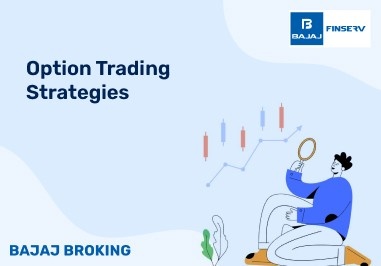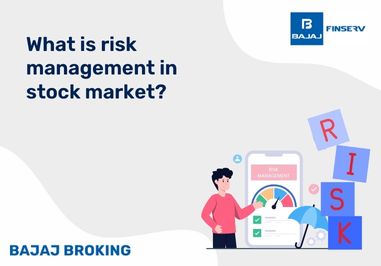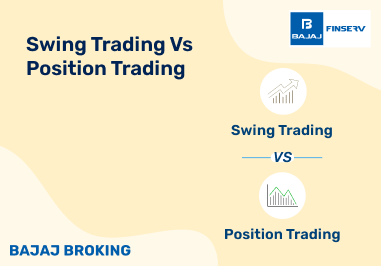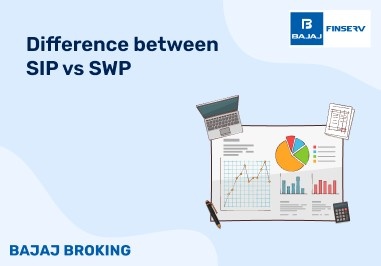Let’s be real — “interest rates” might sound like one of those dull financial terms people throw around in news debates. But in reality, they quietly influence almost everything — from how much you pay on your loan EMIs to how the stock market moves.
So, when the Reserve Bank of India goes ahead and changes rates, it’s not just bankers who need to pay attention; as an investor, you should be curious too. Why? Because they determine how a business borrows, spends, and manages growth — all of which ultimately influence the stock’s final price.
Let’s break this down in simpler, human-level terms: what interest rates even are—how they get higher and lower—and finally, what does all this mean for your investment.
What Are Interest Rates?
Imagine you have a small company and are beginning a new project. You go to the bank to seek a loan, and they say you have to pay a fee based on a percentage of what you borrowed. That percentage is called your interest. In essence, it's the expense of borrowing money.
Now flip the situation. If you keep money in a savings account, the bank pays you interest for letting them use your money. That’s still an interest rate — just in reverse.
In India, the Reserve Bank of India (RBI) plays the lead role. It sets the repo rate, which acts like a master switch for other lending rates. Here are a few you’ll hear about:
Repo rate – What banks pay the RBI when they borrow money.
Reverse repo rate – What the RBI pays banks when it borrows their excess funds.
Marginal Standing Facility (MSF) – The RBI’s emergency borrowing option for banks.
Bank lending rate – What banks charge people or companies when offering loans.
Fixed deposit rate – What you earn when you keep your savings with the bank.
Every one of these rates connects to your financial life — even if it doesn’t feel like it right away.
What Happens When Interest Rates Rise?
When interest rates increase, everything slows down a bit -- borrowing costs more and discretion is applied to purchasing.
For firms, their higher borrowing costs mean less profit and difficulty justifying future growth plans. Investors might view slower growth in a firm's business and then think about whether they will still hold the shares.
For you as an investor, higher rates make fixed-income investments like bonds and deposits look appealing.
It’s like when you walk past a café offering great coffee at half price — it’s tempting to step in, even if you planned to cook at home. Higher interest rates have the same pull on investors.
What Happens When Interest Rates Fall?
Typically, falling rates make it cheaper to borrow, causing more individuals and companies to take out loans. Businesses will step up hiring, expansion, and new projects.
For the stock market, such situations tend to create a sense of optimism. Cheaper money allows companies to grow more easily, so if you are an investor in stocks, you will tend to favor equities over fixed-income securities. We also tend to see more activity in sectors for goods or real estate like housing and automobiles, or other consumer goods, when rates go down.
One thing to keep in mind is that lower rates also mean lower returns on savings, so while companies might benefit from cheaper access to loans, you might accumulate less interest on your deposits.
Importance and Features of Interest Rates
1. Role of Interest Rates in the Economy
Interest rates act like the steering wheel of an economy, guiding growth, regulating inflation, and maintaining a balance in investment flows. When rates decrease, borrowing becomes cheaper, encouraging both businesses and individuals to take loans. Companies invest in expansion, while consumers spend more on big-ticket items like homes and cars. This chain reaction fuels economic growth, productivity, and employment, as businesses hire and plan for future expansion.
2. Impact of Rising Interest Rates
When interest rates increase, the cost of borrowing rises, leading to slower economic growth. The Reserve Bank of India (RBI) often raises rates to control inflation when prices of goods and services rise too quickly. Higher interest rates discourage excessive borrowing and spending, helping the economy stabilise through controlled consumption and investment.
3. Currency and Foreign Investment Effects
Interest rate levels also affect currency strength and foreign investment flows. When rates are higher or seen as more attractive, foreign investors channel funds into the country, strengthening the local currency. Conversely, when rates fall below those of other markets, capital outflows occur as investors seek better returns elsewhere, which can weaken the currency and alter exchange rates.
4. Understanding Market Reactions
Recognising these interest rate trends helps you understand how even small policy changes, such as a 25 basis point shift in RBI’s policy rate, can ripple through markets. Such changes may not seem significant day-to-day but can have noticeable effects on investments and portfolio performance over time.
Additional Read: What is Interest Rate Futures?
Relationship Between Interest Rates and Stock Prices
Once you step into the world of trading or investing, you quickly realise how closely interest rates and stock prices are connected — often in ways that aren’t immediately obvious.
Impact on Business Borrowing and Profits: When interest rates rise, borrowing becomes costlier for businesses. For instance, a manufacturer planning to expand might delay the project if the bank loan becomes expensive. With tighter profit margins and slower growth, investors anticipate reduced earnings, leading to a decline in stock prices.
Effect on Company Valuations: Analysts’ valuations are also impacted. They often use the Discounted Cash Flow (DCF) method to estimate what future earnings are worth today. Higher interest rates reduce the present value of future profits, making some companies appear less attractive for investment.
Influence on Investor Behaviour: Investor behaviour shifts notably during high-interest-rate periods. Safer options like fixed deposits and bonds become more appealing due to guaranteed returns. As investors move funds away from equities, demand for stocks declines, pushing share prices lower.
Overall Market Impact: In summary, higher interest rates generally cool market momentum, while lower rates tend to stimulate it. However, the overall impact always depends on timing, economic context, and investor sentiment.
Market Volatility and Risk Management
Whenever the RBI adjusts rates, the stock market reacts — sometimes calmly, sometimes like it just had too much caffeine. Price swings become more frequent, and it can feel confusing if you are new to investing.
That is where risk management comes in. The first rule? Diversify. Spread your money across different sectors and asset types. When one underperforms, another can help cushion the blow.
Next, think long-term. Markets have always moved in cycles — up, down, and then up again. Instead of reacting to every twist, stay focused on your bigger goals. It helps to remember that short-term volatility rarely defines long-term results.
Stay informed too. Follow credible financial updates, RBI policy changes, and economic trends. The more you understand what drives these shifts, the better your investment decisions become.
And lastly, know your risk comfort zone. If frequent changes in portfolio value make you nervous, consider keeping a mix of assets that gives you balance. Investing feels easier when your portfolio matches your temperament.
Additional Read: 8 Factors That Affect The Stock Market
Conclusion
Interest rates might sound like something only economists should care about, but they quietly influence almost every investment decision you make.
They decide how much it costs companies to borrow, how attractive fixed deposits feel, and even how investors behave when markets fluctuate.
Understanding how interest rates shape the stock market gives you an edge — not because you can predict every move, but because you can interpret what’s happening and respond calmly.
So the next time you hear that the RBI has changed the repo rate, do not scroll past the headline. Pause for a second — because that small percentage tweak could be setting the tone for the market you are investing in.














